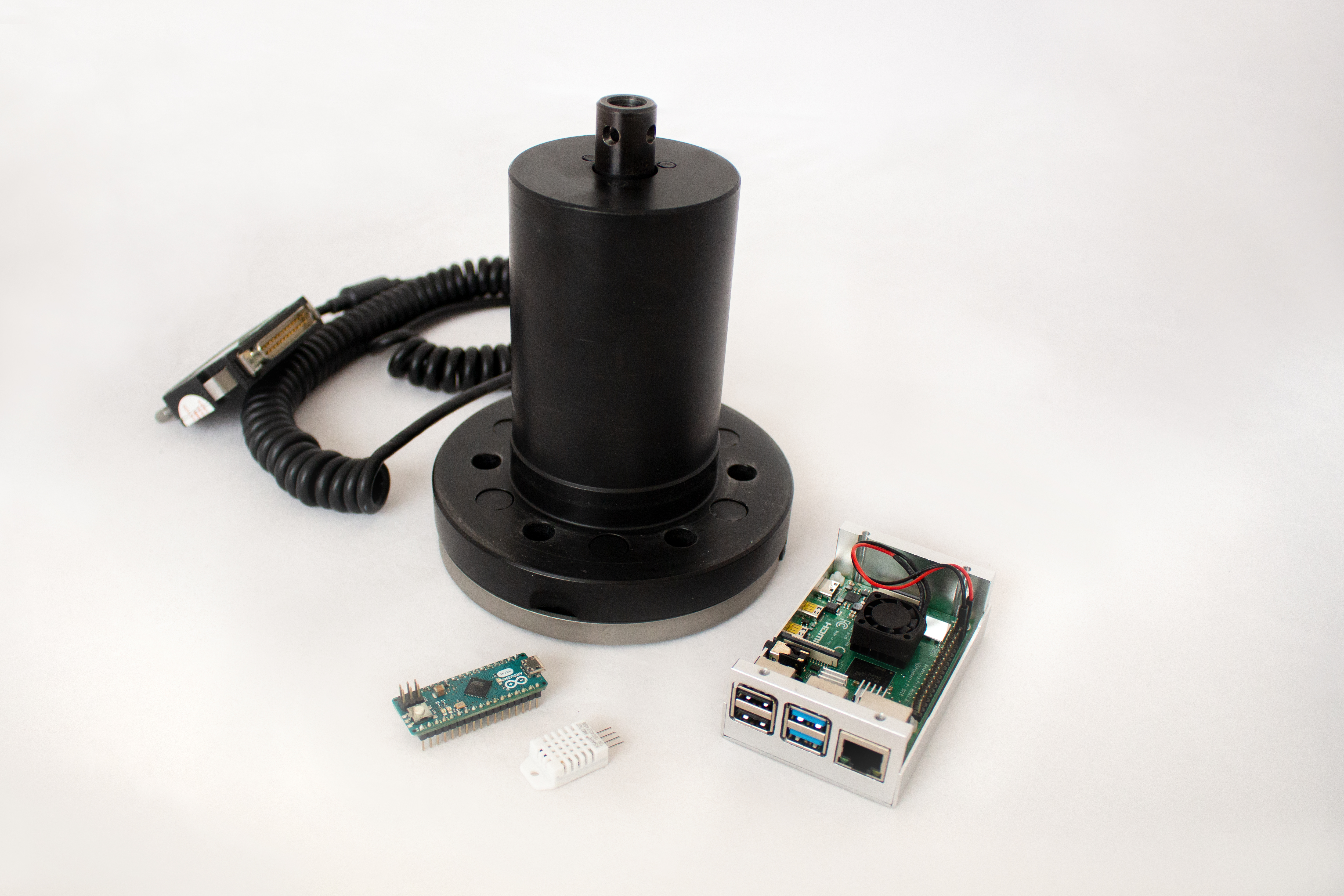As part of the SmartSensor 4.0 research project, an intelligent sensor system was developed in collaboration with the Magdeburg-based company studio.201. This concept contributes to the "Industry 4.0" initiative and, in particular with the smart load cell, represents an important part for intelligent data collection in the processing and characterisation of plastics. The sensor system serves as a data source for the complete description of a production chain, also known as a digital twin. In the project, this was implemented for the area of mechanical characterisation, with the smart load cell being wirelessly connected to a data server via an IoT network. It is also possible to run several such sensor units in a network with a common data repository. Via a web interface, selected data can be made available to other services according to the desired application (OpenAccess).
The main difference to other sensor systems available on the market is that basic and environmental variables are continuously recorded in the three operating states of test (online), movement and storage (offline in each case). This means that overloads as well as environmental and condition variables (also during storage and handling) can be reliably monitored. Monitoring can be defined individually for each channel and connected to a messaging system (e-mail, messenger). Integrated rights management enables the control of read and write rights on a channel and level basis. All measurement data is stored in a common time series databank. By linking timestamps and sensor channel IDs, processes running in parallel (with time overlaps) can also be recorded and later exactly separated. Linking with metadata from other systems (sample and test documentation, test equipment monitoring, device data) is done via test IDs and time stamps.
A prototype developed based on an M5stack/ESP32 can easily be inserted between the testing machine electronics and a standard load cell. Currently, the adaptation is possible on a testing machine at the Fraunhofer IMWS. The developed concept for a smart sensor can also be transferred to other fields of application in industry or in research and development. There are opportunities for further activities and projects with industrial partners, such as the further development and use of the structured data for AI methods or statistical investigations. In addition to material processing and characterisation, the project can also be applied to other fields of application such as medical technology, logistics and agriculture.
